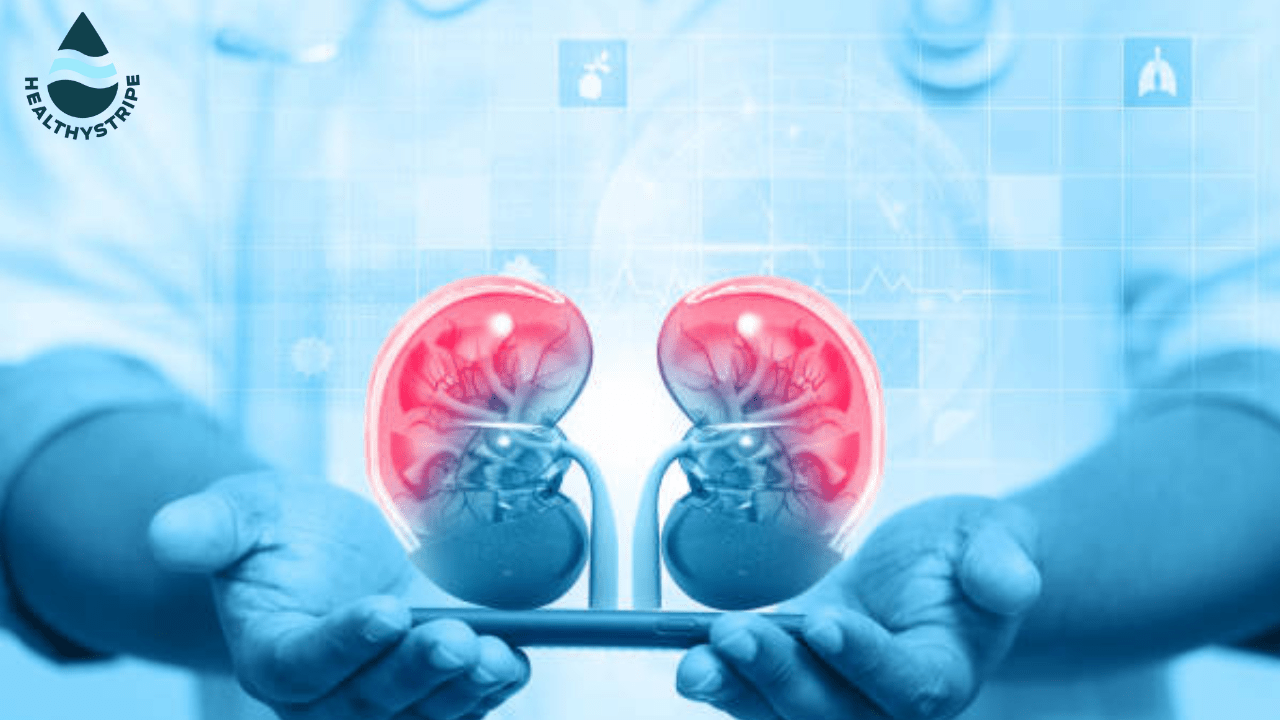Alcohol: Potential Risk And Benefits Of Alcohol Consumption

An abundance of contradictory information regarding alcohol can be found on the Internet. One perspective suggests that consuming alcohol benefits the body. However, it is crucial to acknowledge that alcohol is addictive and extremely hazardous, mainly when consumed excessively.
In reality, the impact of alcohol on one’s health is not uniform and can vary depending on individual factors, such as the quantity and specific type of alcohol consumed. According to data from WHO, in 2018, the global per capita consumption of pure alcohol for individuals aged 15 and above amounted to 6.2 liters. It is worth noting that unrecorded consumption represents 26% of the total global alcohol consumption (1). The following article examines the influence of alcohol on overall health.
Potential Benefits Of Moderate Alcohol Consumption
Contrary to popular belief, there might be a few potential advantages or health benefits of alcohol consumption. However, that is only possible if the consumption is moderate. Now what is moderate alcohol consumption? Well, the definition of moderate alcohol consumption, as outlined in the Dietary Guidelines for Americans 2020-2025, varies based on gender (2):
For females:
- Up to one drink per day, or a maximum of three on any day, and no more than seven drinks per week.
For males:
- Up to two drinks per day, or a maximum of four on any single day, and no more than 14 drinks per week.
A standard drink is typically quantified as follows:
- Beer: 12 fluid ounces (355 milliliters)
- Wine: 5 fluid ounces (148 milliliters)
- Distilled spirits (80 proof): 1.5 fluid ounces (44 milliliters)
Consuming that amount of alcohol might include some important benefits, which are explained here. Multiple scientific studies have revealed intriguing findings regarding the relationship between alcohol consumption and health outcomes.
- Lower Mortality Rates
One notable discovery is that moderate drinkers experience lower mortality rates than abstainers and heavy drinkers. According to findings, Light to moderate drinkers exhibited the lowest risk of incident disability or mortality.
- Risk of Diabetes
Type 2 diabetes affects approximately 8% of the global population (3). This condition is characterized by higher-than-normal blood sugar levels, which is caused by a decrease in the ability of cells to absorb glucose, known as insulin resistance.
Interestingly, moderate alcohol consumption has been found to potentially decrease insulin resistance and combat the primary symptoms of diabetes. Studies suggest that when alcohol is consumed in moderation alongside meals, it may reduce the increase in blood sugar by 16–37% more compared to consuming water (4). Additionally, fasting blood glucose levels, which refers to blood sugar between meals, may also decrease.
Moreover, moderate alcohol consumption has been associated with a decreased overall risk of developing diabetes. However, it is essential to note that heavy and binge drinking can increase the risk of developing the condition.
- Cognitive Health
Several studies have highlighted the connection between alcohol consumption and cognitive health. It has been observed that individuals who engage in mild to moderate alcohol intake over time exhibit a lower risk of dementia and a decreased rate of cognitive decline (5).
- Gallstones
Additionally, moderate alcohol intake has decreased the risk of developing gallstone diseases (6). This finding suggests that consuming alcohol in moderation may contribute to a healthier gallbladder and a reduced likelihood of experiencing gallstone-related complications.
- Heart Health
Heart disease is the primary cause of mortality in contemporary society. It encompasses many ailments, with coronary heart disease, heart attacks, and strokes being the most prevalent. The association between alcohol consumption and heart disease is intricate and influenced by multiple factors.
Evidence has emerged indicating that mild to moderate alcohol consumption can potentially lower the risk of coronary heart disease and cardiovascular mortality (7).
It is important to note, as emphasized by the American Heart Association, that if an individual does not consume alcohol, it is not advisable to initiate drinking. For those who drink, it is crucial to exercise restraint and limit the amount consumed.
What Are the Risks Of Alcohol Use?
While moderate alcohol consumption might have some benefits, heavy or binge drinking can only cause your body to develop problems. There are many risks of alcohol use, and some are mentioned below.
- Liver Damage
The liver is highly susceptible to damage from alcohol consumption. Among many liver diseases, the first to emerge is fatty liver, characterized by the accumulation of fat within liver cells.
Individuals who engage in heavy alcohol consumption, consuming a minimum of 80 grams of alcohol per day for over a decade, are almost certain to develop liver disease, with a rate close to 100%. (8).
In heavy drinkers, binge drinking can lead to liver inflammation. In severe cases, liver cells perish and are replaced by scar tissue, resulting in a critical condition known as cirrhosis. Cirrhosis is an irreversible condition associated with various serious health complications. A liver transplant may be the sole viable treatment option in the advanced stages of cirrhosis.
- Brain Damage
Excessive alcohol consumption can hurt the brain as well. The presence of ethanol hinders communication between brain cells, leading to the characteristic symptoms of intoxication in the short term.
Binge drinking can result in blackouts, where memory loss or amnesia occurs during heavy drinking episodes. While these effects are temporary, long-term alcohol abuse can bring about permanent changes in the brain, often leading to impaired cognitive function.
The brain is highly susceptible to damage, making chronic alcohol abuse a risk factor for dementia and brain shrinkage in middle-aged and older adults. In severe cases, alcohol-induced brain damage can hinder an individual’s ability to live independently
- Depression
Although both alcohol intake and depression have been linked to an increased risk of each other, it is frequently alcohol abuse that serves as the primary causal factor.
Many individuals who experience anxiety and depression turn to alcohol intentionally as a means to alleviate stress and improve their mood. Alcohol consumption may provide temporary relief for a few hours, it can ultimately worsen overall mental health and initiate a harmful cycle.
- Body Weight
Body weight is a matter of great concern in terms of health. Alcohol, being the second most calorie-dense nutrient after fat, contains approximately 7 calories per gram. Comparatively, beer and sugary soft drinks have a similar calorie content per ounce, while red wine contains twice as much.
However, studies examining the relationship between alcohol and weight have yielded inconsistent findings. Drinking habits and preferences may influence the outcome (9).
For instance, moderate drinking is associated with limited weight gain, whereas heavy drinking is linked to increased weight gain. Interestingly, while drinking beer benefits the physique, it also expands the waistline, commonly referred to as a “beer belly,” Consuming wine may have the opposite effect.
- Cancer
Cancer is a grave condition characterized by the abnormal proliferation of cells.
The consumption of alcohol poses a significant risk for various types of cancer, including those affecting the mouth, throat, colon, breast, and liver.
The cells that line the mouth and throat are particularly susceptible to the detrimental effects of alcohol.
Even light alcohol consumption, defined as up to one drink per day, has been associated with a 20% increase in the risk of developing mouth and throat cancer (10).
The risk escalates with higher alcohol intake. Consuming more than four drinks daily is correlated with a fivefold increase in the risk of mouth and throat cancer and an elevated risk of breast, colon, and liver cancer.
- Addition is Dangerous
Alcohol addiction, commonly referred to as alcohol dependence or alcoholism, can seriously affect individuals.
It is estimated that approximately 12% of Americans have experienced alcohol dependence at some point in their lives (11). This condition contributes significantly to alcohol abuse and disability in the United States and is a prominent risk factor for various diseases.
Several factors can contribute to the development of problematic drinking habits, including family history, social environment, mental health, and genetics. There are different subtypes of alcohol dependence, each characterized by symptoms such as intense cravings for alcohol, an inability to refrain from drinking, or a loss of self-control while consuming alcohol.
A general guideline is that if alcohol negatively impacts your quality of life, you may be dealing with alcohol dependence or alcoholism, which can increase the risks of alcohol consumption.
How Much Is Too Much Alcohol?
Guidelines for alcohol consumption are typically established based on the recommended number of standard drinks per day. However, one of the challenges is that many individuals lack clarity on what constitutes a “standard drink.” Complicating matters further, the definition of a standard drink varies across different countries.
In the United States, a standard drink is any beverage containing approximately 0.6 fluid ounces or 14 grams of pure alcohol (ethanol) (12).
It is essential to understand the distinction between moderate and heavy drinking. Moderate drinking is typically defined as consuming no more than one standard drink per day for women and no more than two standard drinks per day for men.
On the other hand, heavy drinking is characterized by consuming more than three drinks per day for women and more than four drinks per day for men, according to trusted sources.
In addition to the quantity of alcohol consumed, the pattern of drinking is also a significant factor to consider. Binge drinking, which involves consuming large quantities of alcohol within a short period, is considered a form of alcohol abuse and can lead to various harmful consequences.
It is important to recognize the potential risks of binge drinking and maintain responsible drinking habits.
The Role Of Electrolytes In Hangover Prevention
Hangovers occur after excessive alcohol consumption and are characterized by symptoms such as headache, fatigue, and dehydration. Electrolytes, which are electrically charged minerals, play a vital role in our body’s functions. When we consume alcohol, it acts as a diuretic, leading to dehydration and electrolyte loss.
Including electrolyte-rich foods or beverages in your pre- or post-drinking routine can help prevent or alleviate hangover symptoms. Electrolytes aid in rehydration by helping the body retain water and promoting fluid absorption. They also replenish important minerals like potassium and magnesium depleted by alcohol consumption. By restoring electrolyte balance, they assist in reducing hangover-related discomfort.
Various sources of electrolytes can help prevent hangovers. Sports drinks contain sodium and potassium and are designed to replace lost fluids and electrolytes during physical activity. Natural coconut water is rich in potassium, sodium, and magnesium. Bananas are a nutrient-dense fruit that provides potassium, and warm broth-based soups offer sodium and other electrolytes while aiding in rehydration.
Conclusion
Alcohol, a widely consumed substance globally, has potential benefits and risks.
Alcohol average consumption of red wine has been associated with several health advantages. However, it is crucial to note that excessive alcohol intake and the development of alcohol addiction can harm physical and mental well-being. It’s essential to be aware that alcohol consumption, regardless of the amount, may increase the risk of developing certain types of cancer.
If you find that you have a tendency to consume alcohol excessively or if you notice that alcohol is causing difficulties in your life, it is advisable to minimize or avoid its consumption as much as possible. Alcohol quitting benefits your health and well-being in the best way.
When it comes to alcohol and its impact on the liver, excessive consumption of alcohol can be bad. There is no definitive evidence to suggest that a particular type of alcohol, such as liquor, beer, or wine, is inherently harder on the liver than others. The key factor is the amount and pattern of alcohol consumption.
How much alcohol is safe per day?
Which alcohol is hardest on the liver?
When it comes to alcohol and its impact on the liver, excessive consumption of alcohol can be bad. There is no definitive evidence to suggest that a particular type of alcohol, such as liquor, beer, or wine, is inherently harder on the liver than others. The key factor is the amount and pattern of alcohol consumption.
What are alcohol benefits for the stomach?
While alcohol is not generally considered beneficial for the stomach, moderate alcohol consumption, particularly red wine, has been associated with some potential health benefits. Red wine contains compounds such as resveratrol, which has been suggested to have antioxidant and anti-inflammatory properties that might benefit heart health. Remember that individual responses to alcohol can vary, and alcohol can also irritate the stomach lining and contribute to conditions like gastritis and ulcers.
What is normal alcohol consumption?
“Normal” alcohol consumption can vary significantly depending on cultural, social, and individual factors. In many countries, moderate drinking is socially acceptable and within recommended limits. As mentioned earlier, moderate drinking typically means up to one drink per day for women and up to two drinks per day for men. But some individuals should avoid alcohol altogether, such as those with certain medical conditions, individuals taking certain medications, pregnant women, and those with a history of alcohol addiction.
What alcohol is OK for kidneys?
In general, excessive alcohol consumption can be harmful to kidney health. It can lead to dehydration, electrolyte imbalances, and increased kidney strain. If you have healthy kidneys and consume alcohol in moderation, it is unlikely to cause significant harm. Still, excessive alcohol intake can exacerbate existing kidney conditions or increase the risk of developing kidney problems. If you have kidney disease or are at risk of kidney problems, it is advisable to consult with a healthcare professional for personalized advice.
Is whisky good for you?
Whisky, like any other alcoholic beverage, should be consumed in moderation. While some studies have suggested potential health benefits associated with moderate alcohol consumption, such as a reduced risk of heart disease, it’s important to note that these benefits are not specific to whisky alone. Whisky is high in alcohol content and should be consumed responsibly. Excessive alcohol consumption, including whisky, can lead to various health issues, including liver damage, addiction, increased cancer risk, and other negative effects. It is always advisable to consult with a healthcare professional regarding your specific health circumstances and alcohol consumption.









